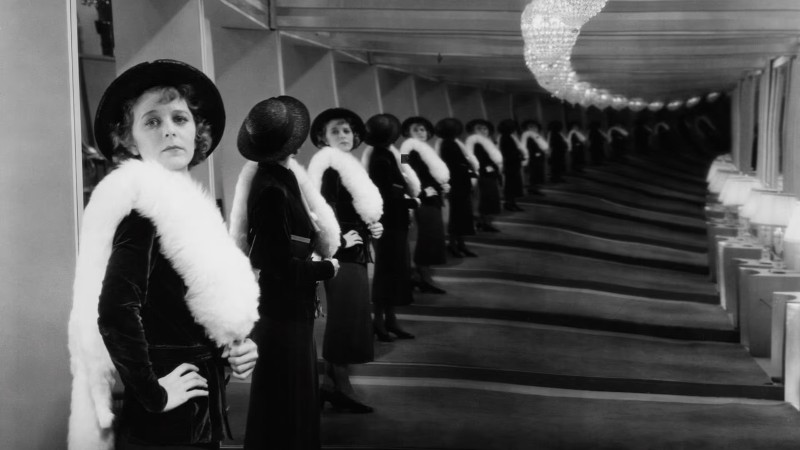Kantemir Balagov’s Beanpole

Two years ago, Russian director Kantemir Balagov presented his feature debut, Closeness, in the Un Certain Regard program at Cannes and won the prestigious FIPRESCI prize from the International Federation of Film Critics. Balagov, a former student of Alexander Sokurov and all of twenty-seven now, returns to UCR with Beanpole, a film inspired by Svetlana Alexievich’s The Unwomanly Face of War, an oral history of the women who fought for Russia during the Second World War. As Balagov tells Variety’s Leo Barraclough, the book had him asking himself, “What would happen to a woman after the war, when there is a tectonic shift in her mind, her nature?”
One of the post-traumatic effects on Iya (Viktoria Miroshnichenko), nicknamed “Beanpole” for her long and lanky figure, is the occasional seizure that renders her body completely immobile. Given that she’s working as a nurse in an overcrowded hospital in Leningrad, and moreover, caring for young boy, Pashka (Timofey Glazkof), her condition is an unpredictable threat to any and all around her. She’s soon reunited with a close friend from the front, Masha (Vasilisa Perelygina), who returns to a city still ravaged by one of the longest and harshest sieges in the history of warfare. A year after the siege was lifted, food and other essentials remain short. People are throwing themselves in front of moving trams. As Daniel Kasman writes in the Notebook, both Iya and Masha “have damaged minds, damaged psyches, damaged bodies—the extent of which we grow to discover, but never to fully comprehend. What either of these women want from each other or from themselves refuses to be pinned down: identity, desires, and yearning remain a post-war confusion, but the heartache is never less than vivid.”
Jessica Kiang, writing for Variety, finds Beanpole “incredibly bleak, but crafted with such care that it’s also deeply compelling. Events so disturbing that you long to look away are presented in images so striking that you cannot. DP Ksenia Sereda’s paradoxically warm, startling cinematography is full of exquisite, painterly compositions alongside Balagov’s now-trademark claustrophobic close-ups. Accents of deep turquoise and rich crimson are carried through from Olga Smirnova’s period-faithful yet highly expressive costuming to Sergey Ivanov’s immaculate production design.”
The film is certainly anything but static. As IndieWire’s David Ehrlich puts it, “the demented energy that Masha lugs back to Leningrad is dangerous and unstable enough to suggest the film’s ‘slow-cinema’ façade might crumble at any moment. Perelygina delivers a brilliant performance in her first movie role, embodying her character with the feral energy of a wounded shark that’s picked up the scent of its own blood.” But Beanpole is ultimately “a pas de deux that Miroshnichenko leads with a dancer’s grace.”
Not all the praise for Beanpole in this first round of reviews is unqualified. The Hollywood Reporter’s Todd McCarthy finds the film “both rigorous and indulgent, rewarding and aggravating.” For Jonathan Romney in Screen, there are simply too many “surges of intense emotion for true dramatic cogency.” But for Ben Kenigsberg at RogerEbert.com, “Balagov’s skill as a filmmaker—there’s one extraordinary long take involving Iya and Pashka that I’m reluctant to give away—is beyond doubt.”



